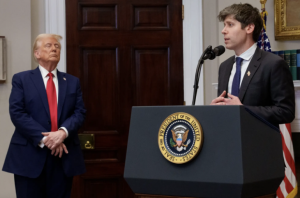My Filipino-American Experience
September 30, 2015
Along with many Americans, I am apart of a subculture of people with immigrant parents. My siblings and I are first-generation Filipino-Americans. Unlike many immigrants in America, I have had the privileges that come with being a U.S. citizen since day one.
It’s ironic to think of an American being unwelcoming to immigrants, considering the fact that this country was built on the immigration of Europeans, Africans, and now almost every possible racial group around the world. But when I was younger, I avoided associating myself with the Filipino immigrants that attended middle school and high school with me.
The dreaded “Fresh Off the Boat” title haunted the halls of Stephen White Middle School and Carson High. To be labeled F.O.B. was to be considered a dork with a heavy accent dressed in hand-me-down clothing, paired with fake sneakers. Even my Filipino-American peers made fun of Filipino immigrant kids.
Many young immigrants who are unable to speak English are clearly ridiculed and bullied into speaking the American style of English. It is expected to be a glamorous and prestigious journey for better opportunities, but many immigrants instead develop underlying feelings of needing to assimilate to American customs for fear of being a social outcast.
Thanks to what some call “white passing privileges,” I naturally assimilated to the American lifestyle. My ambiguous complexion made it easy for people to confuse my ethnicity for Spanish, Mexican and even white. I also spoke with a heavy Californian accent just like everyone else.
This notion of having “passing privileges” flipped when I visited the Philippines. There, I was the outcast. Unable to comprehend the deeper conversations spoken in my parents’ native tongue, Tagalog, I was at a disadvantage trying to communicate with people of my own heritage. I experience a small glimpse of what it was like to have communication barrier in what was supposed to be a familiar language.
I realized that privilege and acceptance were nothing more than cultural constructs. In the Philippines, speaking English and Tagalog with a heavy accent was normal.
Difference only comes from perspective. From an American point of view, immigrants have funny accents; from a foreigner’s point of view, Americans have funny accents. Where one might seem comfortable because of the color of his or her skin or the way he or she speaks, one might feel out of place in a different country.
Despite having differences, we are all human. We all share the common desire of wanting to communicate with other people.
I appreciate the fact that my parents weren’t born in America, the culture they have instilled in me and the influence the Filipino community has had on my life because I’ve experienced something outside American norms. My culture is what makes me an American.






